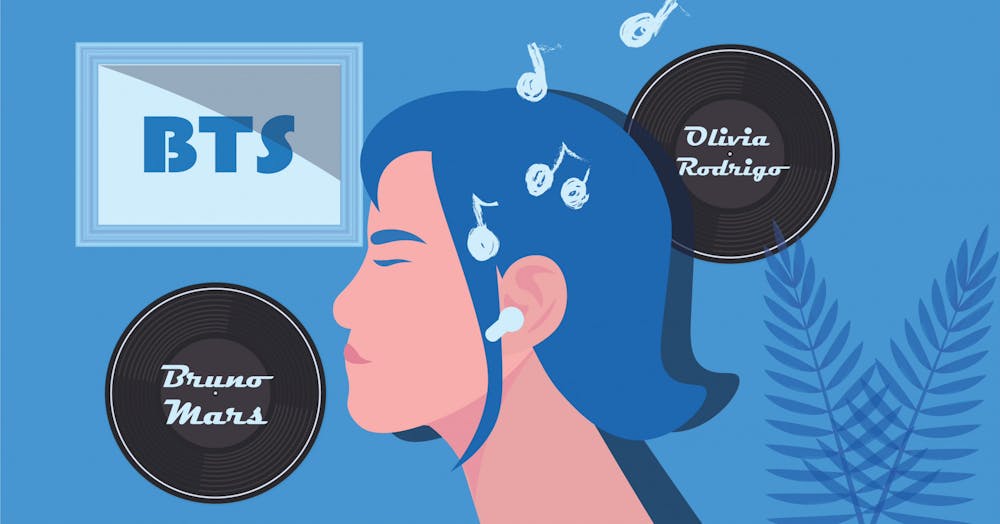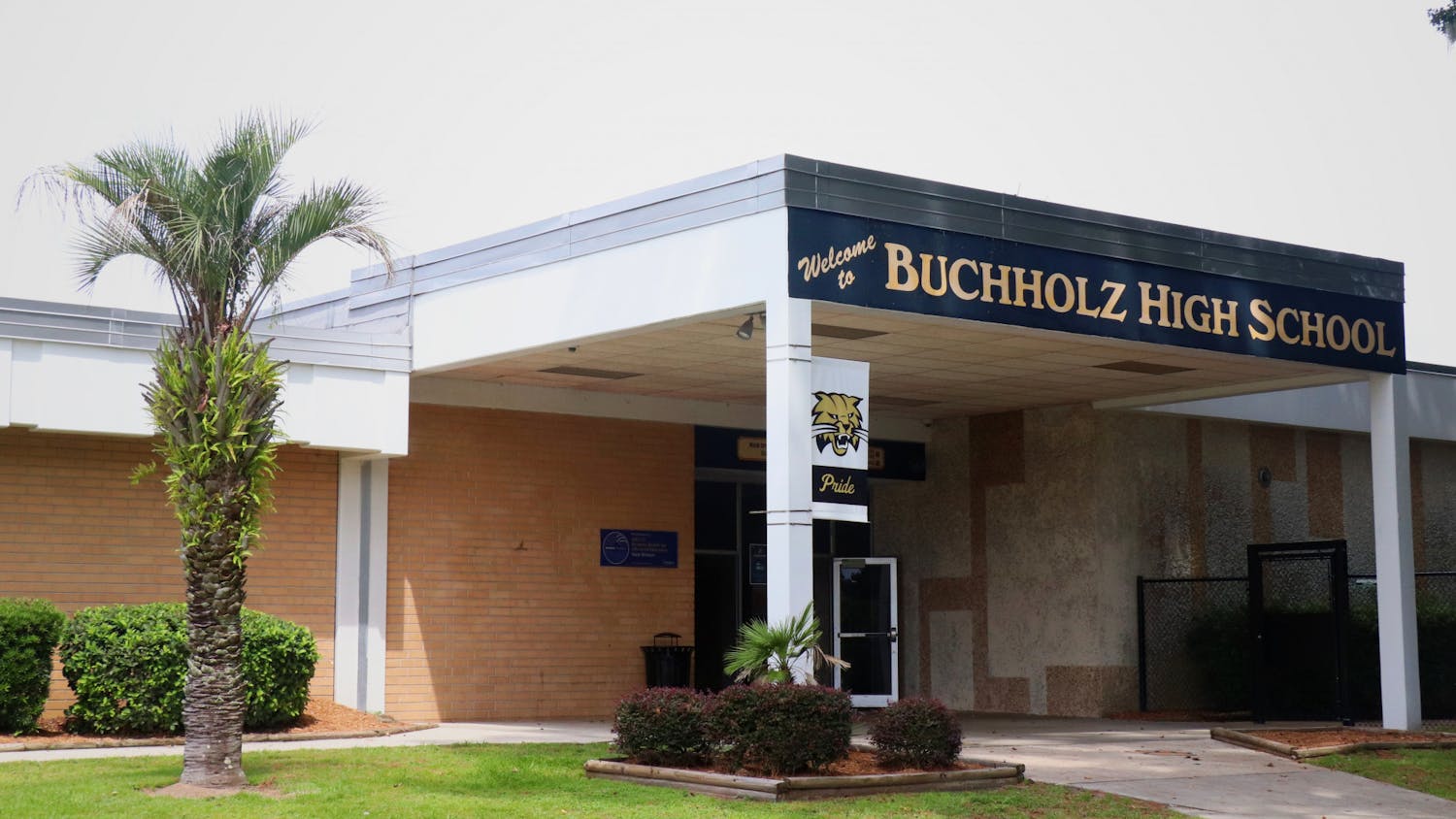From the neon-coated, hyper sounds of Korean pop music (K-Pop) like BTS, to the sweet melodies of singer-songwriter Conan Gray, a range of Asian and Pacific Islander musicians influence North American pop culture.
The Avenue reached out to three members of the Asian American and Pacific Islander (AAPI) community in honor of heritage month to discover which AAPI artists are in their playlists.
Western artists have a history of being inspired by musicians from Asian and Pacific Islanders and merging the two cultures. Whether it be collaborations or visuals in music videos and social media posts, examples of this type of influence in pop culture are everywhere.
In 2021, American artist Lady Gaga paired with South Korean girl group BLACKPINK to create the bubblegum dance-pop anthem “Sour Candy.” Today, “Sour Candy” has over 210 million streams on Spotify.
Alyssa Soejima, a third-year education science major at UF, is Japanese American. She is passionate about listening to Asian pop music, and in particular, she blasts Japanese pop music and K-Pop.
Soejima said as a child she was a Lady Gaga fan. Even though BLACKPINK isn’t her favorite K-Pop group, she was ecstatic about a Korean group pairing with one of her favorite artists from the U.S. to combine Asian influence with mainstream American pop culture.
“I think collaborating is a really good way for cultures to discover more about the other,” Soejima said.
Niko Bronto is a Filipino American and the outgoing Executive Director for UF Asian Kaleidoscope Month.
The fourth-year advertising student said it’s great Asian music and culture is growing in the U.S. He added it opens up a conversation about cultural appropriation and what defines an “Asian sound and who gets to decide what styles of production ‘belongs’ to a group.”
“I think the leaps that K-Pop and international Asian music has done for the Asian community is huge. It also highlights some problems like colorism and classism,” Bronto said.
Asian and Pacific Islander communities contribute to the artistry of others. My Linh Tinnirella, a third-year theatre student at Florida State University, said AAPI artists contributed to her musical vision.
A Vietnamese American herself, she mentioned R&B AAPI artists who influence her style.
“I’ve noticed a lot of people of Asian or Pacific Islander descent have a very distinct sound that is still very catchy and very creative,” Tinnirella said.
She said musicians like Jhené Aiko and Joji have “very unique sounds” she greatly appreciates and considers while writing her own music.
Rolling Stone explains how the record label 88Rising pushed several Asian hip-hop artists to be successful in the U.S. music charts. Joji, who was born in Japan and moved to the states when he was 18, became the first Asian-born artist to top Billboard R&B/Hip-Hop album charts for his album “Ballads 1” in 2018.
Soejima and Bronto acknowledge some of their favorite artists in the AAPI community who also happen to ride the hip-hop wave.
“NIKI is probably one of my favorites,” Soejima said. “Her persona, in general, is so cute and amazing. She sings all of her songs in English, so it provides me an opportunity to recommend it to other people more.”
Soejima said it can be sad to feel the need to recommend only music sung in English to her American friends. She said she thinks NIKI is an incredible singer with “vibey” sounds people would enjoy.
In addition, Bronto said H.E.R. is one of his favorite AAPI artists to listen to.
“I love H.E.R. because she represents her identities with an authenticity that many artists don’t always showcase as well as she has,” Bronto said.
As Asian, Pacific Islander and Asian American musicians influence North America’s mainstream pop culture, they gain recognition and provide representation that was absent in the past.
You can stream Bronto and Soejima’s favorite AAPI artists as well as a song from Tinnirella herself on a playlist curated by the Avenue in honor of Asian American and Pacific Islander heritage month. The mix also includes artists like Bruno Mars, Mitski, Olivia Rodrigo, Rina Sawayama and more. Listen here.
Contact and follow Karter Nancy on Twitter @writtenbykarter.






